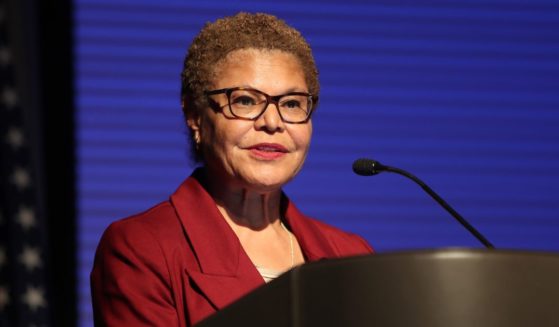
New York Times Columnist Accuses Ilhan Omar of Being a 'Bridge Destroyer'
Democratic Congresswoman Ilhan Omar’s take-no-prisoners rhetoric on the relationship between the U.S. and Israel has made her a “bridge destroyer,” a New York Times columnist said Saturday.
Speaking on CNN’s “Smerconish,” Thomas Friedman said Omar’s tactics are the opposite of what her district, and the nation, need.
Omar, a Muslim, has been at the center of controversy over her remarks about Israel. As reported by The Western Journal, her detractors have said she has crossed the line into anti-Semitism. She and her supporters insist her comments are simply encouraging America to consider a new perspective on the U.S.-Israel relationship.
Friedman said Omar could have used her unique heritage as a Somali refugee and a Muslim who represents a large Jewish community to foster positive change, but has not done so.
“Ilhan Omar represents, I believe, the biggest Jewish community in the whole upper Midwest,” Friedman said Saturday.
“She represents that community. She also represents a Somali immigrant community that’s come to our city since then and added their voice and their richness and their color,” he said.
“She was perfectly poised to be a bridge builder between Muslims and Jews, between Arabs and Israelis,” Friedman continued. “And rather than come to Washington and be a bridge builder, she has come to be a bridge destroyer.”
Omar says anti-Semitic stuff repeatedly.
Media: Omar makes controversial comments about Israel.
Democrats water down resolution to avoid condemning Omar.
Media: Democrats vote to condemn hate.
A few GOP vote against sham resolution in protest.
Media: Republicans are anti-Semitic.— Ben Shapiro (@benshapiro) March 7, 2019
“Do you want to make a point? Or do you want to make a difference? Do you want to be constructive or destructive? … There are constructive ways to be critical of AIPAC or this administration right now,” Friedman said.
“But when you come in and start throwing around these tropes about dual allegiance, about Israel and Jews hypnotizing people, no one is going to believe you’re innocent here because you are not being constructive.”
Friedman earlier chastised Omar in a Wednesday column in The New York Times. In the column, between extensive criticisms of the American Israel Public Affairs Committee, he laments that Omar has missed her chance to lead.
“Everything I have heard from her leads me to conclude that she dislikes AIPAC because she dislikes Israel, because she does not really believe the Jewish people have a right to an independent state in their ancestral homeland,” Friedman wrote, noting how Omar flopped on the Boycott, Divestment and Sanctions movement against Israel, which she said she opposed before the election and said she supported after winning her seat.
Friedman said in Omar’s attacks on AIPAC, which wades deeply into American politics, she is missing the point.
“If she thinks the only reason that Americans support Israel is because of AIPAC and campaign contributions, she is dead wrong. Americans’ affinity with Israel is rooted in a respect for Israel’s ability to maintain a democracy, albeit with flaws, in a sea of autocratic regimes; it is rooted in a Judeo-Christian religious affinity; and it is rooted in respect for Israel’s contributions to technology, medicine and science. AIPAC is the beneficiary of that support, not the cause of it,” he wrote.
He also criticized her claim that Israel’s supporters have dual loyalty to Israel and the U.S.
“When I see that dual-loyalty charge coming from a congresswoman who first signaled opposition to B.D.S. and then support for it, when I see it coming from a congresswoman who has never been to Israel, when I see it coming from a congresswoman who, to my knowledge, has never criticized the Palestinian leadership for its corruption and failure — time and again — to seize on peace overtures from Israeli leaders who, unlike Netanyahu, actually wanted to forge a two-state solution, when I see it coming from a congresswoman who seems to be obsessed with Israel’s misdeeds as the biggest problem in the Middle East — not Iran’s effective occupation of four Arab capitals, its support for ethnic cleansing and the use of poison gas in Syria and its crushing of Lebanese democracy — it makes me suspicious of her motives,” he wrote.
Friedman ended his discussion of Omar by writing, “I don’t know if it’s her or her advisers, but she’s gotten herself into a bad place — a huge missed leadership opportunity.”
Truth and Accuracy
We are committed to truth and accuracy in all of our journalism. Read our editorial standards.
Advertise with The Western Journal and reach millions of highly engaged readers, while supporting our work. Advertise Today.












